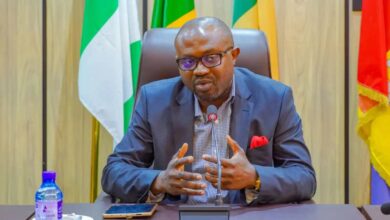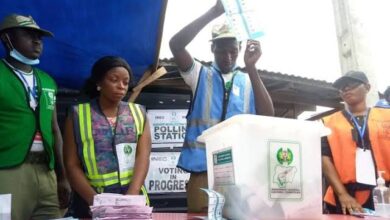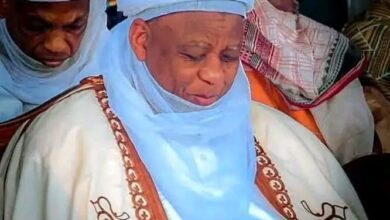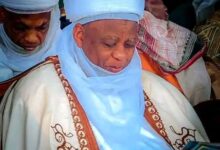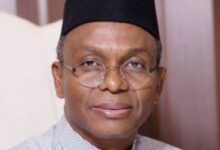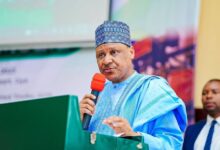How we have suffered in silence without helpers, Ibeju-Lekki Lagos natives cry out
*Says, ‘We suffer neglect, no school, electricity, hospital, drinkable water, exposure to environmental hazards, source of livelihood destroyed *Laments, ‘Lagos State Government through an agency, NTDA headed by one Aboyeji takes over our land, shows no concern about our plight but uses police to maliciously prosecute natives for asking for their rights’ *Explains how native communities were left uncatered for despite Dangote’s $100m land deal *Coming local government elections may not hold here if something is not done – Group *Genesis of communities plight story of sweetness and sadness - Investigation

By KEMI KASUMU
While residents and indigenes are happy to hear officials speak glowingly about the potentials of these investments for economic growth, they are worried that many communities in the Ibeju-Lekki Local Government still lack electricity, hospitals, schools, access to drinkable water and other people-based development and social amenities.
Weeks after they were invited by the Department of State Service (DSS) over their involvement in the Freedom of Information (FOI) suit against Lagos State Government, Governor Babajide Sanwo-Olu, Accountant General and Permanent Secretary of the Bureau of Land for the release of information regarding the $100 million paid to the state government by Alhaji Aliko Dangote for the building of his Dangote Refinery, the Ibeju-Lekki Peoples Forum says it has suffered neglect for long without helpers in a state claimed to be the largest economy in Africa’s most populous country.
This latest outpouring that is the first time a major public cry would be coming from the native organization was contained in a statement issued by President of the Ibeju-Lekki Peoples Forum, Mr. Wale Agoro, dated Sunday October 8, 2024 and circulated to the media in Lagos.
“In fact Ibeju-Lekki is now referred to as a captured local government, whose landed properties and vast resources are used to compensate those in government or close to government,” Agoro said.
According to the statement, natives and residents of the Ibeju-Lekki area have taken a firm stand, declaring that ‘Enough is Enough!’ in response to the prolonged power outage and lack of adequate electricity infrastructure in their community, despite the huge revenues generated by government from the sales of their land to their cronies.
As the nation approaches another election cycle at the local government level, the people of Ibeju-Lekki say they are sending a clear message to the authorities: “No Light, No Election”.
It said, “For years, the community has struggled with irregular power supply, leaving homes, businesses and public services in disarray. Despite numerous promise from both local and national politicians, the situation has not improved.
“The natives and residents argue that power is a basic necessity for development and quality of life, and the continued neglect of their electricity needs demonstrates a disregard for their welfare.
“The lack of electricity has had far-reaching impacts, stifling economic growth, disrupting daily activities, and diminishing the quality of education and healthcare. Small businesses, which are the backbone of the local economy, face high operational costs due to reliance on generators, and many have been forced to shut down as a result.
“Students struggle to study at night, and health facilities are unable to provide essential services, putting lives at risk.
“With the elections on the horizon, the people of Ibeju-Lekki are leveraging their voting power to demand accountability and tangible change. They insist that without a commitment to resolving the power issues, there will be no participation in the upcoming polls. “No Light, No Election” is more than just a slogan – it is a cry for justice and a call to action.
“This movement highlights the growing frustration among communities that feel left behind by the government’s development agenda. The message is clear: politicians must prioritize real solutions over empty promises if they want the people’s support.
“As the election approaches, it remains to be seen whether this bold stand will prompt the necessary changes or further widen the gap between the community and those in power.
“The worst of it all is that the Lagos State Government has been exchanging their land for money to private developers and raking in billions of naira to the cofers of the state and without corresponding developments in the Ibeju-Lekki Community.
“The NTDA of Lagos State government uses police of AREA J, ELEMORO, AKODO and that of the Lagos State Taskforce to suppress indigenous people of Ibeju-Lekki and deny them their constitutional rights of ownership to their land.”
Genesis of communities plight story of sweetess and sadness
The DEFENDER’s investigations revealed that despite their communities hosting multi-billion-dollar investments, natives and residents of over 40 communities in Ibeju-Lekki Local Government Area of Lagos State have continued to wallow in darkness. The communities host the Lekki Free Trade Zone and the popular Dangote refinery among other multi-billion-naira projects.
Former Lagos Governor and currently Presidebt of Nigeria, Mr. Bola Ahmed Tinubu, in 2006 launched the ambitious Lekki Free Trade Zone, domiciled in Ibeju-Lekki, as an agenda to turn the region into one of the largest investment destinations of choice in Africa.
At the ground-breaking ceremony on May 12, 2006, Mr Tinubu likened the creation of the export free zone to one of the most effective strategies for transforming a country like Nigeria from third to first world country.
Since then, Ibeju-Lekki Local Government has seen the entry of huge private investments and one of such is the much-celebrated Dangote Petrochemicals Refinery, a $20 billion investment, reputed to be the largest single-train refinery in the world.
The refinery, which Tinubu camp claimed was attracted to Lagos with 7,000 acres of land taken from the native communities without known compensation freely given to the local investor, sits on 6,180 acres (2,500 hectares) of land. Alhaji Aliko Dangote has however countered the claim, saying he paid $100 million to Lagos State Government for the land, now eliciting questions as yo who collected the money, which account was used to receive it, what it was used for and why the land owners were not comoensated.
Another such investment is the Lekki Deep Sea Port, an over $1.5 billion investment that has since been commissioned and projected as one of the largest deep seaports in Sub-Saharan Africa.
While residents and indigenes are happy to hear officials speak glowingly about the potentials of these investments for economic growth, they are worried that many communities in the Ibeju-Lekki Local Government still lack electricity, hospitals, schools, access to drinkable water and other people-based development and social amenities.



